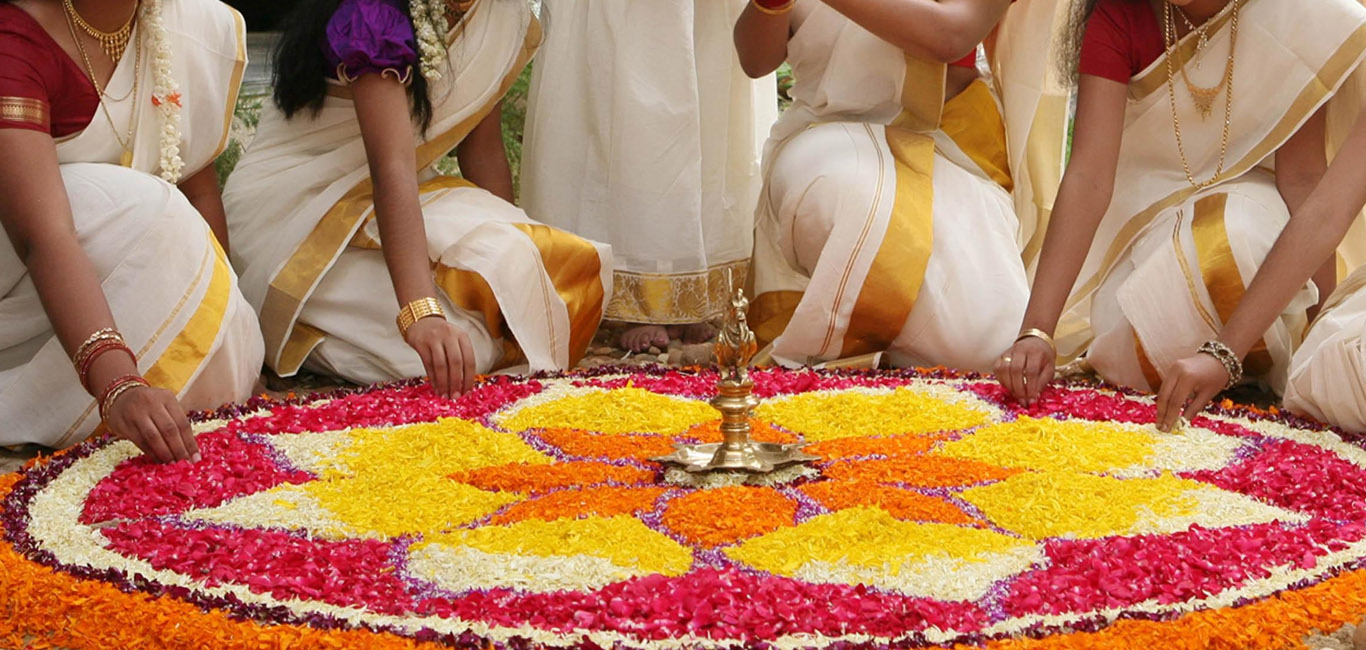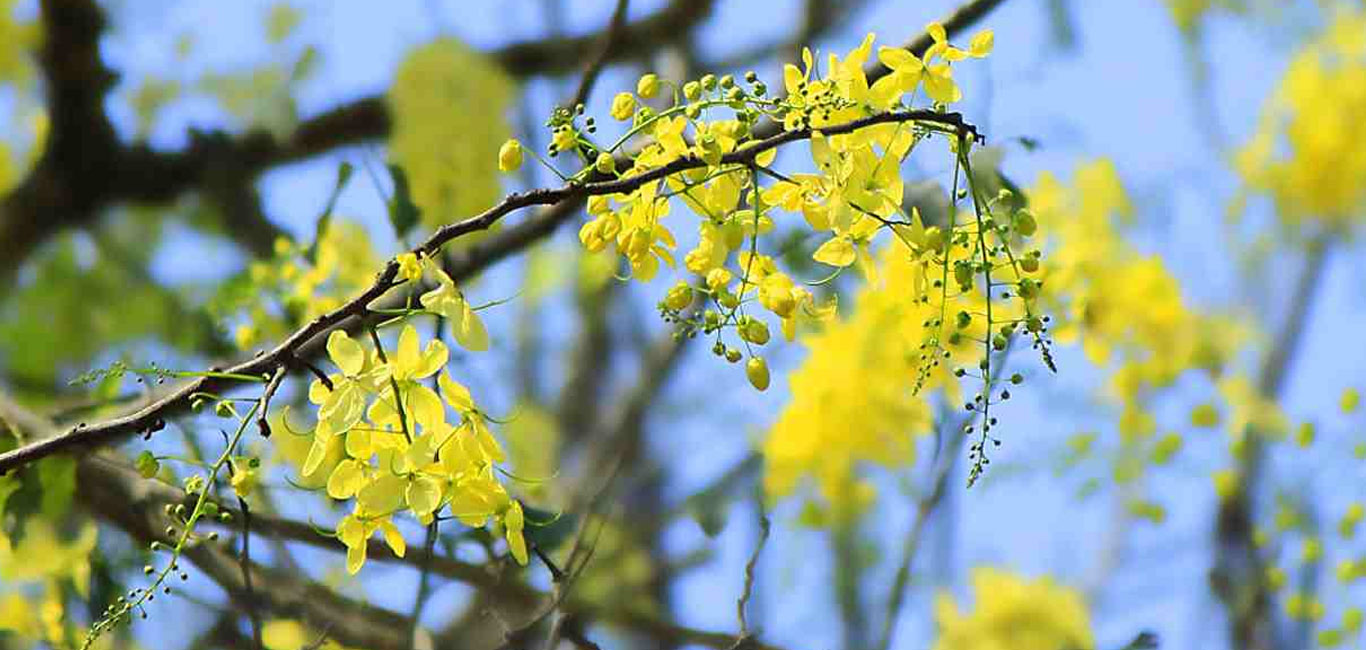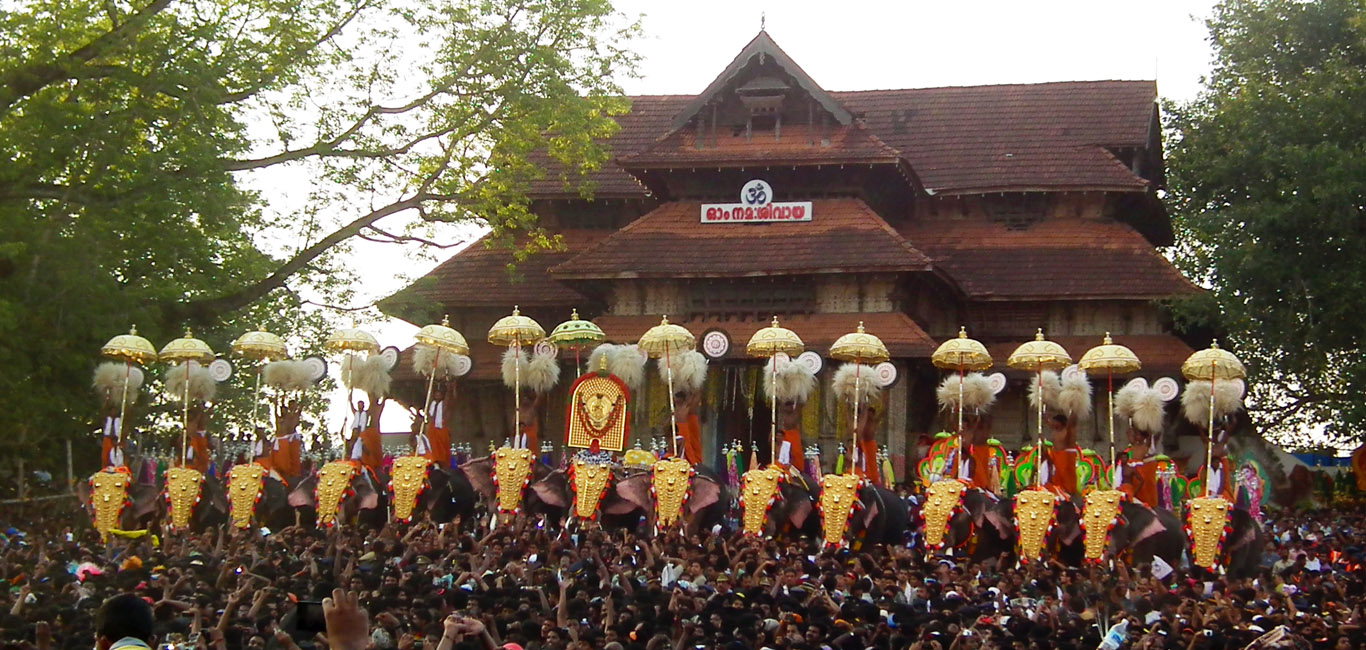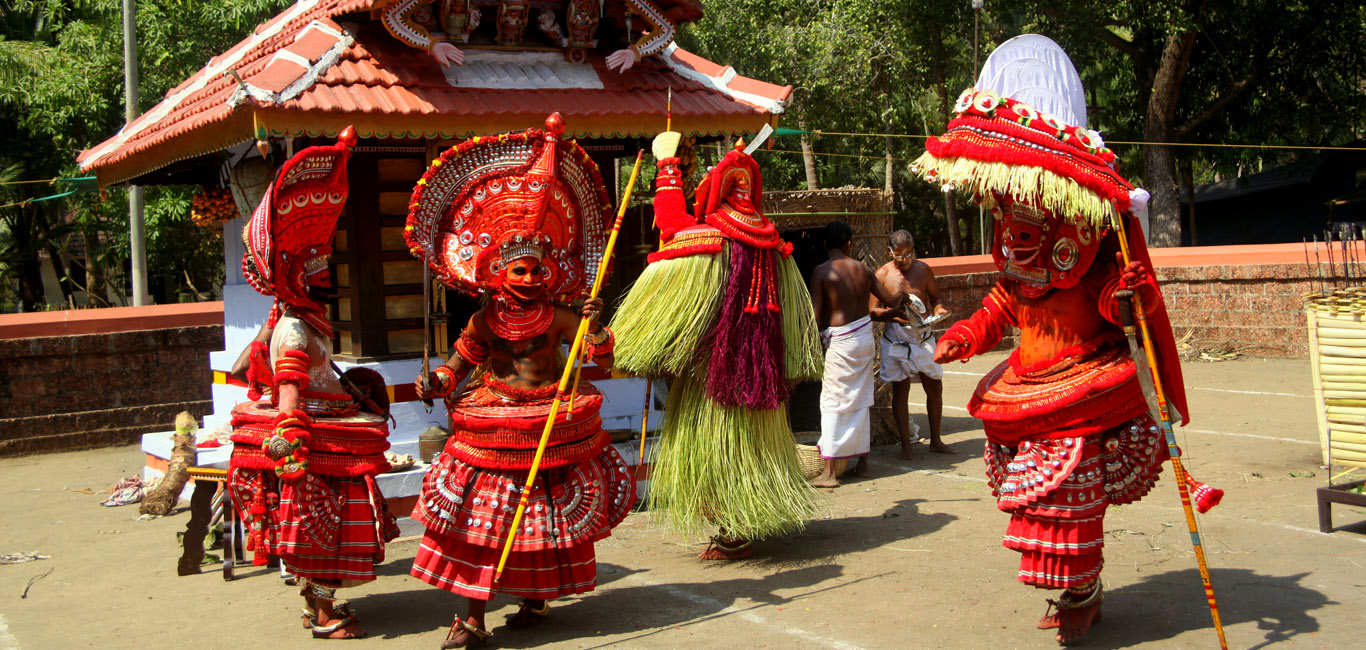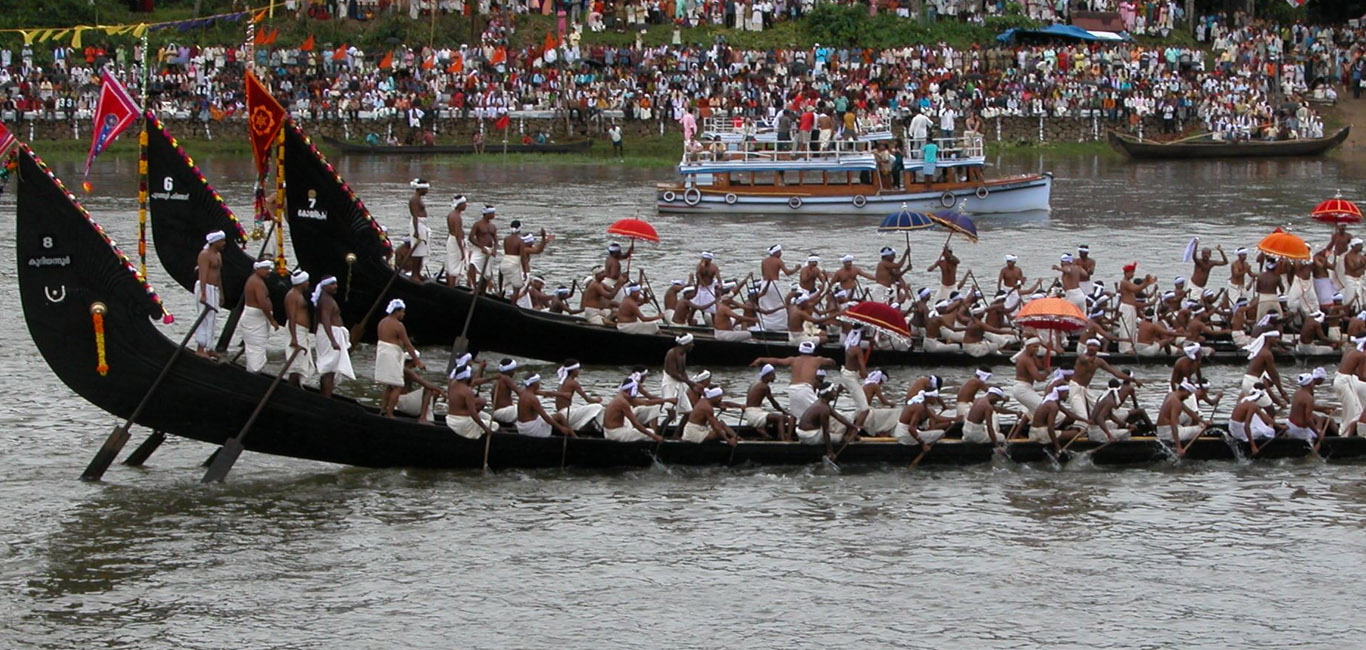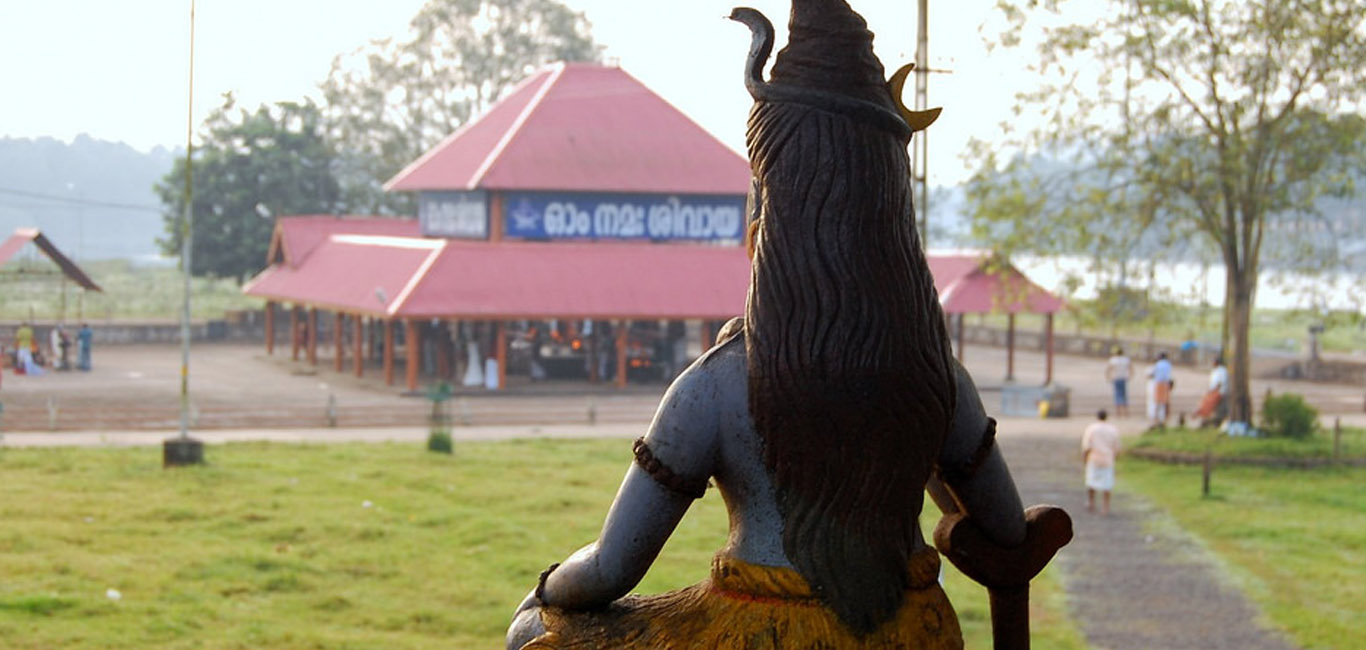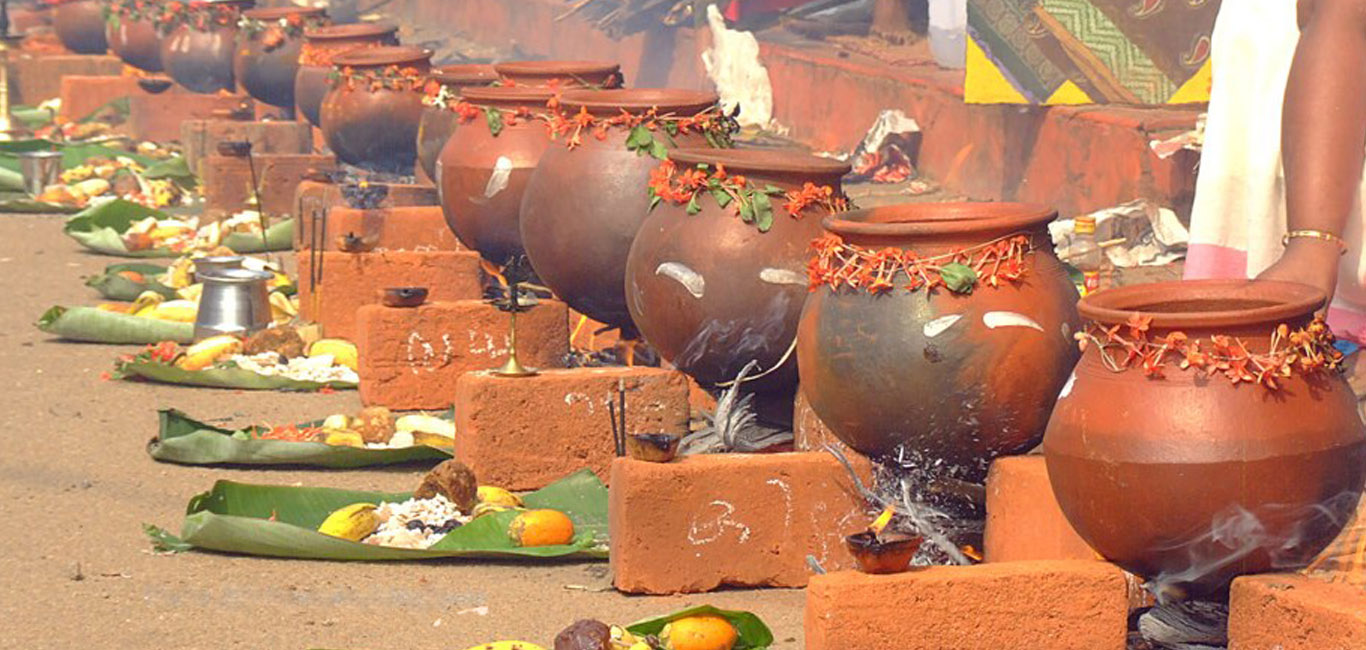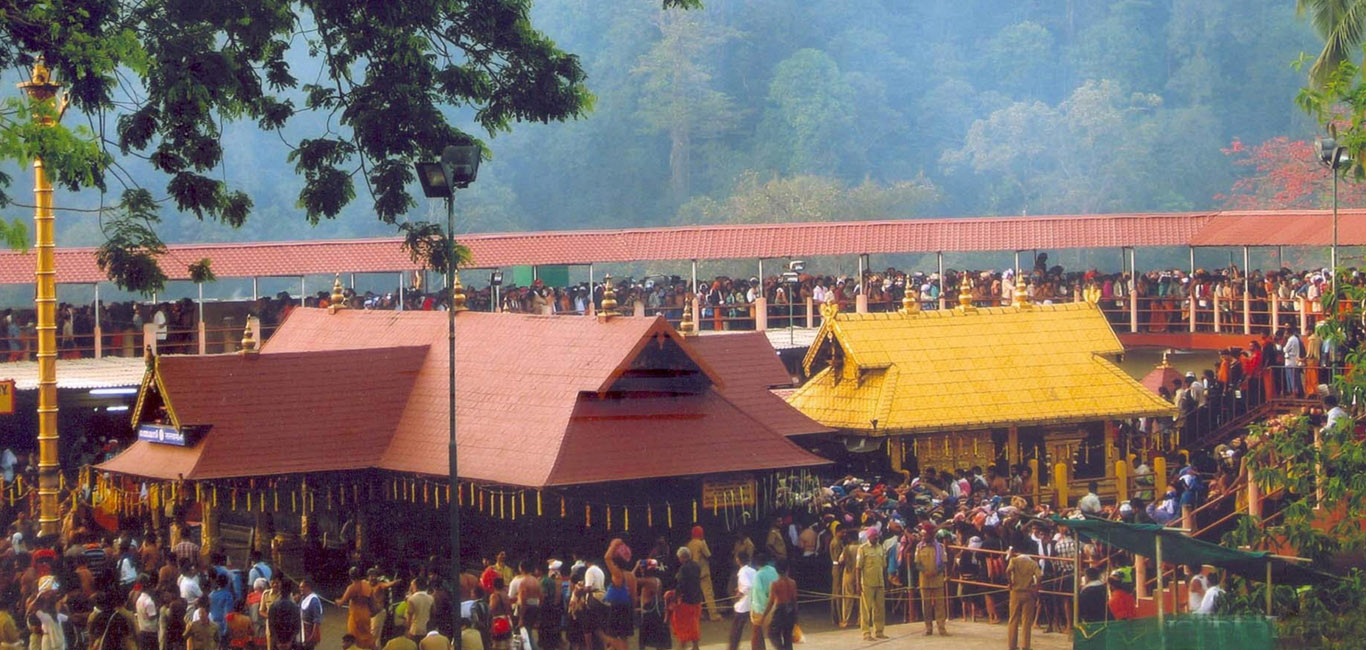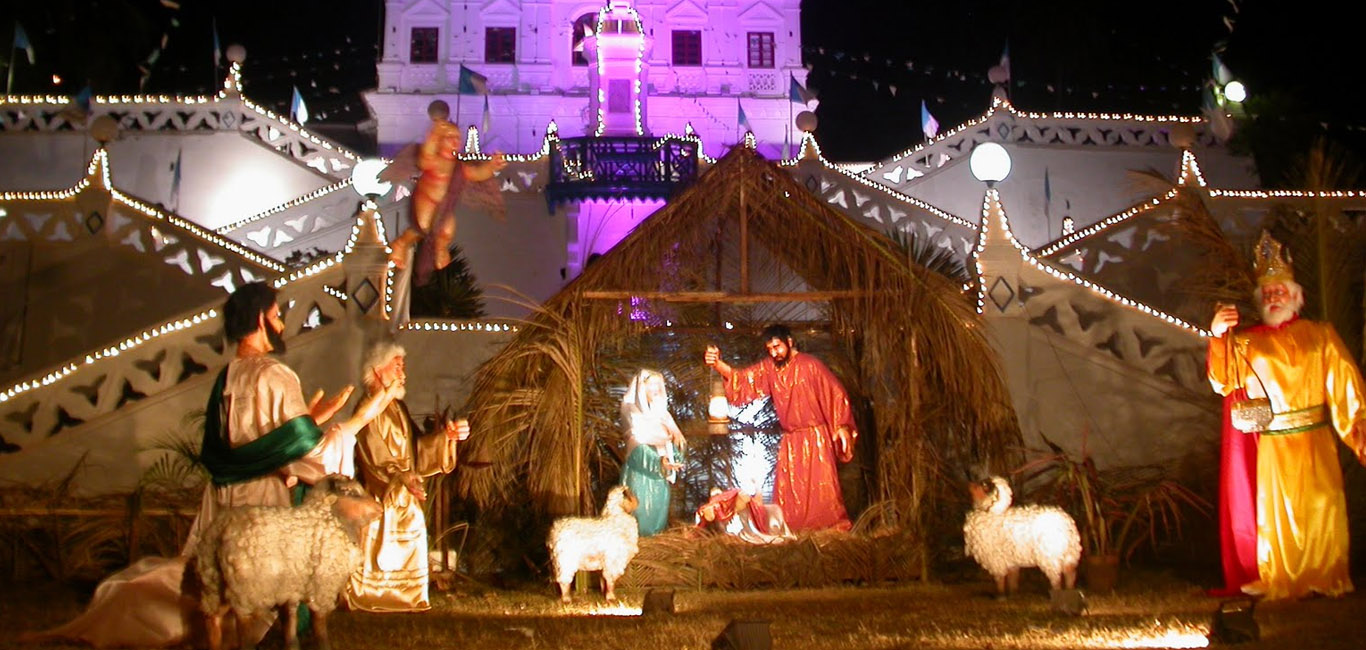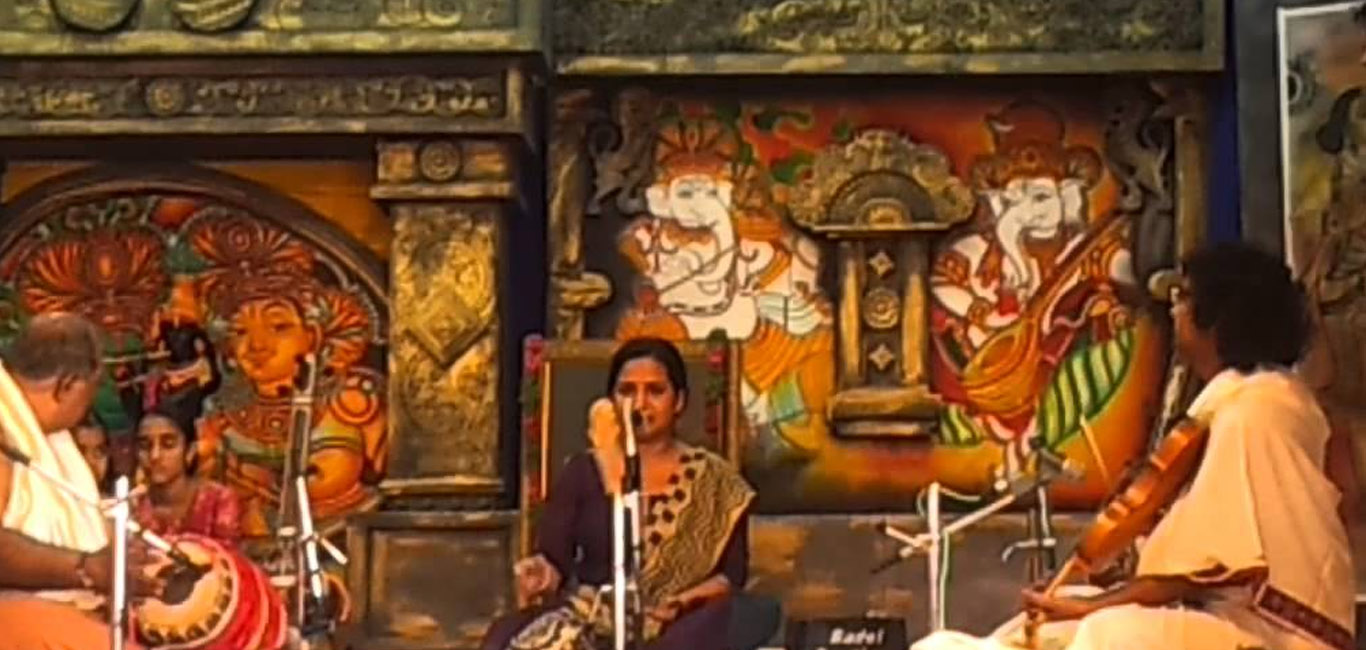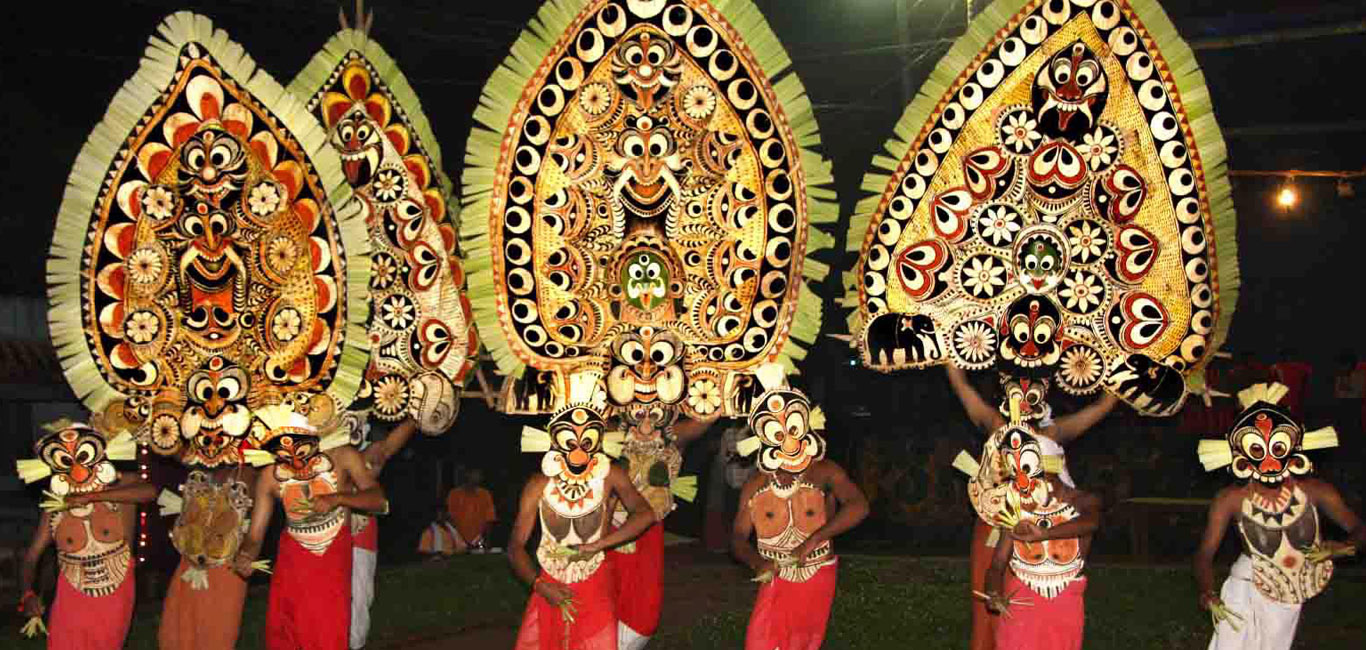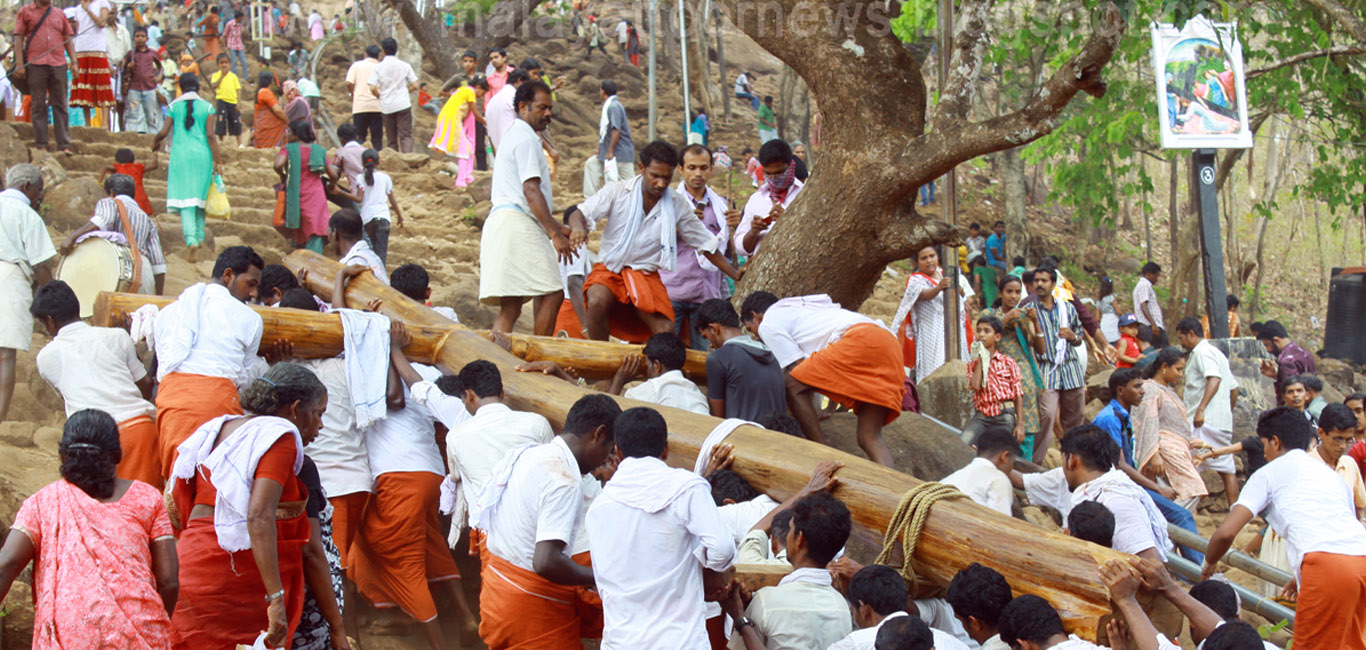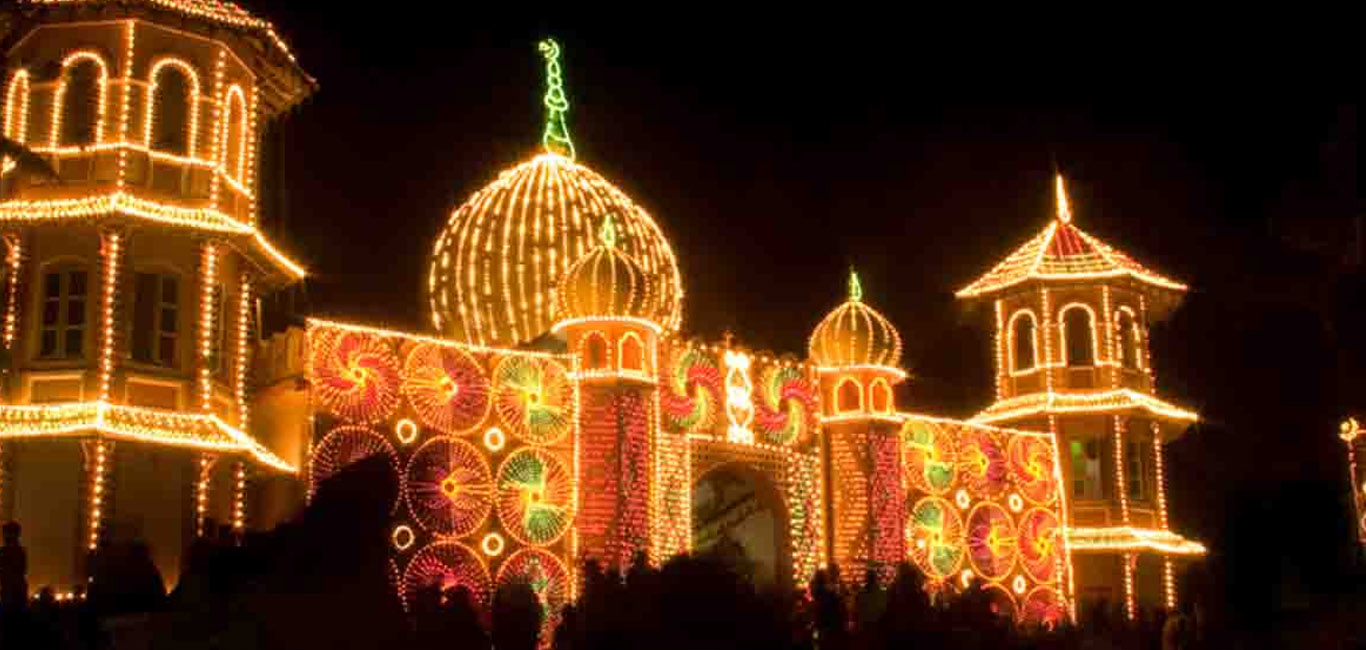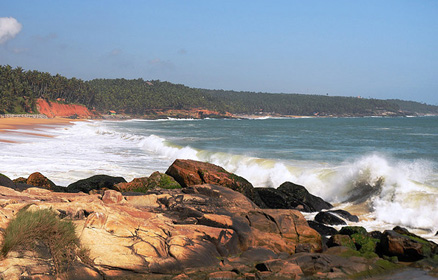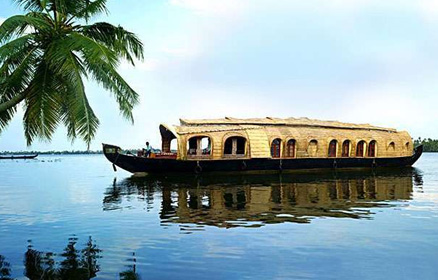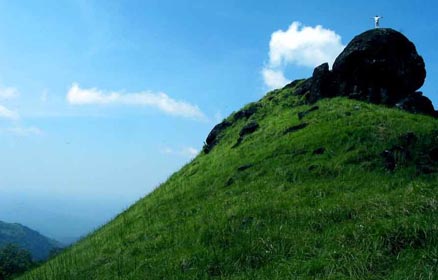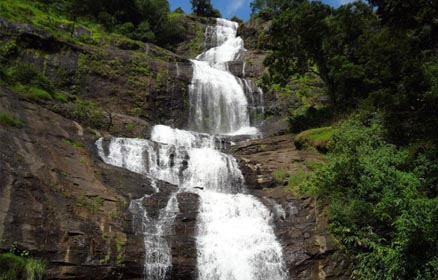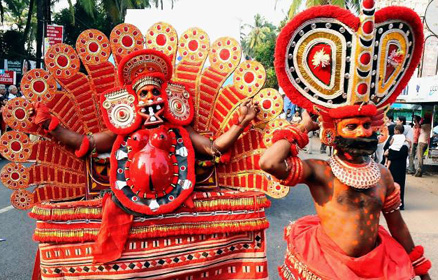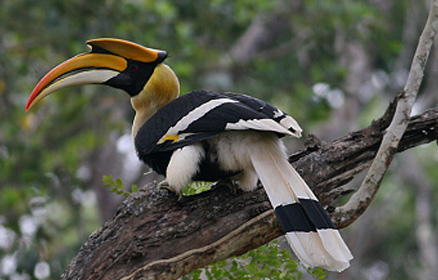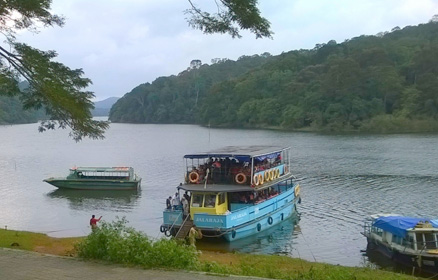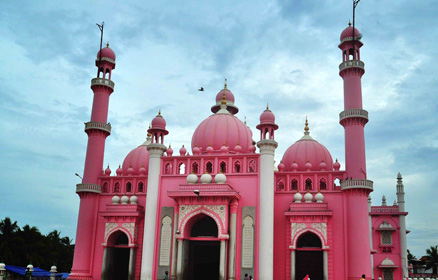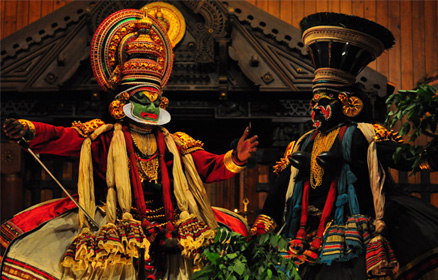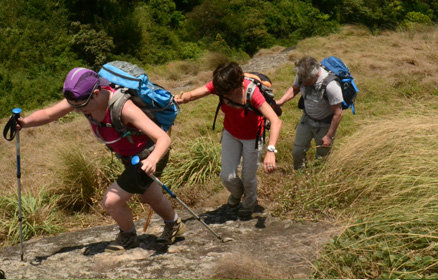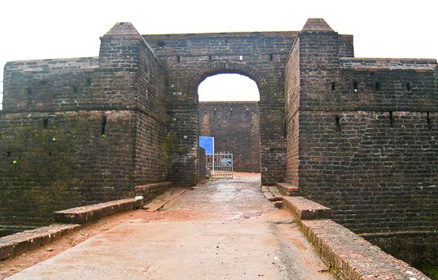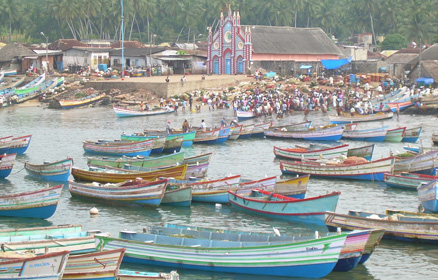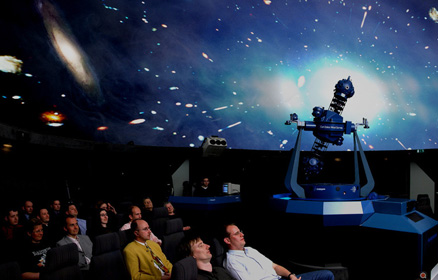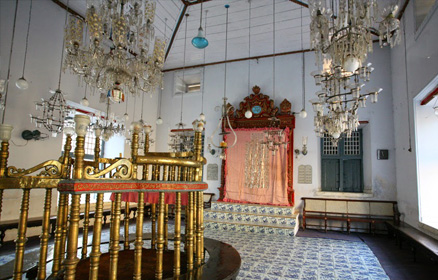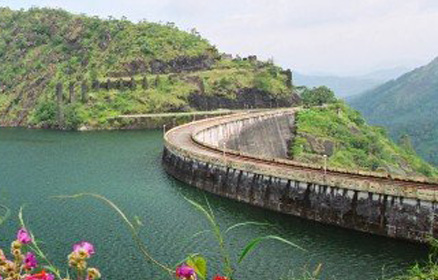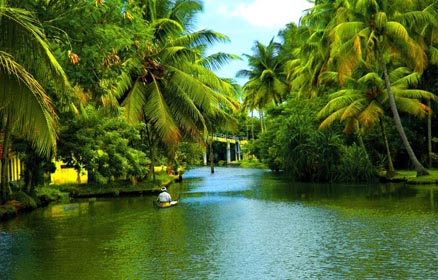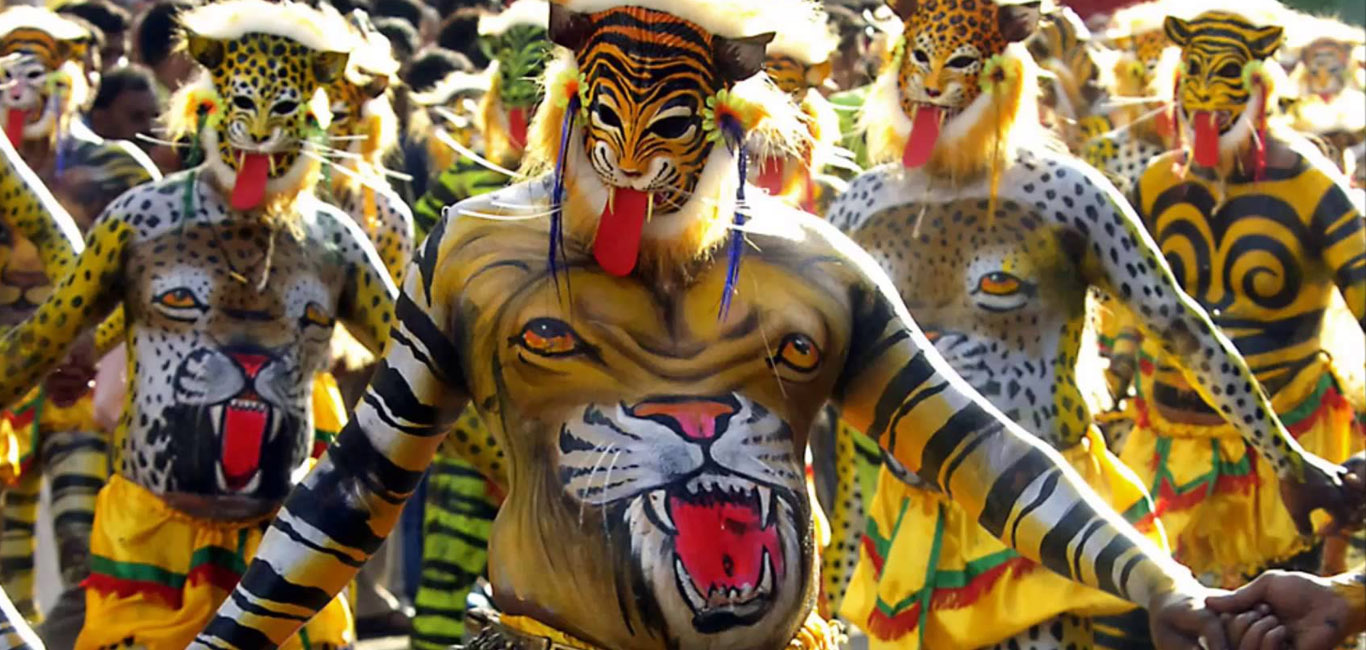
Traditional festivals
Chettikulangara Bharani
Chettikulangara Kumba Bharani is one of the most well-known festivals of Kerala. Chettikulangara Sree Bhagavathi temple is one of the most renowned temples in Kerala. The temple is located at Chettikulangara in Mavelikkara taluk of Alappuzha district in the south Indian state of Kerala. One of the most spectacular events that pulls a large crowd during the festival is the kettukazhcha, a ceremonious procession of brightly decorated structures among which the tall and bigger ones are assumed as horses and smaller ones as chariots.
Machattu Mamangam
Celebrated every year at the Machattu Thiruvanikavu Temple in the Thrissur district. The highlight of the festival is the procession on the concluding day. It would feature richly decorated kuthira kolams (effigies of horses), ceremoniously brought to the temple by the devotees as offerings. The procession is accompanied by players of traditional percussion instruments and it culminates at the temple premises, making it a memorable event. Every year this festival is celebrated in the mid of February.
Neelamperoor Pooram Padayani
Neelamperoor Pooram Padayani is one of the famous festivals celebrated in the Indian state of Kerela . This festival is hosted at the Neelamperoor Pally Bhagavathi Temple which is situated in a village known as Kuttanadtaluk in the district named Alappuzha in Kerela. TheNeelamperoorPooramPadayani manifestly shows a blend of both Buddhist as well as Hindu cultures. This is a very colorful festival during which the entire temple premise is decorated very beautifully. Statues of Bhima, swans, yakshi and elephant dummies are used for beautifying the occasion. The making of the effigies of the swans is locally known as annam kettu.
Ochira Kali
The festival is linked to the Ochira Parabrahma temple ,a temple without a definite layout or idol of worship . It involves a mock battle fought ceremoniously to the sound of drums from the water logged padanilam close to the temple. Men and even boys dressed as warriors enter the wetland, split into two groups and engage in the mock battle using sticks instead of swords and splashing water at each other. The battle etiquette is that one side advances for some time and then allows the other side to advance. The retreat and advance are performed rhythmically to the beat of drums.
Pulikali
Pulikali also known as Kaduvaakali, is a folk art form of Kerala in which artists paint themselves with tiger stripes of yellow, red and black, and dance to the rhythm of traditional percussion instruments such as thakil, udukku and chenda. The main theme of the dance is tiger hunting. Though the dance is performed all over Kerala during Onam, it has special significance in Palakkad and Thrissur districts. In Thrissur more than 800 people dressed as tigers from the neighbouring 14 village areas in the district, participate in the event held on the fourth day of Onam.
Velakali
This spectacular martial dance is performed by men in some of the temples of southern Kerala. The dancers, clad in the traditional clothes and colourful headgear of the medieval Nair soldiers, engage in vigorous movements and dexterous sword play, to the accompaniment of an orchestra comprising the maddalam, ilathalam, kombu and kuzhal. Velakali originated in Ambalappuzha where Mathoor Panicker, chief of the Chempakasserri army, promoted it to boost the martial spirit of the people. The dance form is a regular feature of the annual festivities at the Ambalappuzha Sree Krishna temple in Alappuzha district.
© 2017 Kerala Calling You. All rights reserved .
